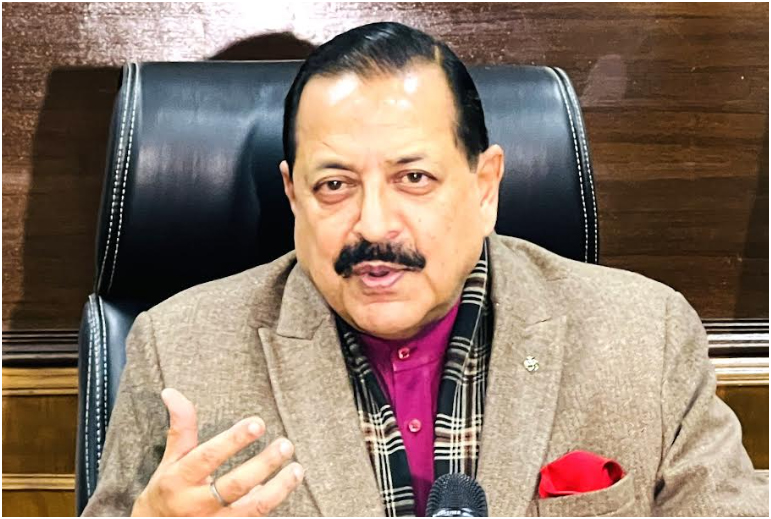New Delhi, Feb 13: Highlighting various initiatives launched by the Centre to enhance the quality of life for pensioners, Union Minister Jitendra Singh remarked on Thursday that Prime Minister Narendra Modi has revamped governance to become a more compassionate and responsive system.
During the launch of the 12th Pension Adalat in the city, he mentioned that this initiative has not only accelerated the resolution of grievances but also affirmed the government’s dedication to recognizing pensioners as vital members of society.
“Under Prime Minister Modi’s leadership, governance has evolved into a system that is more humane and accessible. Pensioners are no longer subjected to bureaucratic delays or forced to wait years for justice. The government is focused on alleviating their challenges through policy changes and digital innovations,” stated Singh, the Minister of State for Personnel.
Since the inception of Pension Adalats in 2017, a total of 25,416 cases have been addressed over 12 sessions, with 18,157 cases resolved successfully by various ministries and departments, he elaborated.
At the 12th Pension Adalat held on Thursday, the Department of Pension & Pensioners’ Welfare (DoPPW) tackled 192 cases, with 151 resolved immediately, highlighting the effectiveness of this initiative in providing timely resolutions for pensioners, as noted in a Personnel Ministry statement.
The minister referred to multiple instances where pensioners received much-needed relief.
“Dr. Arvind Kumar, a retired Associate Professor from the Indian Military Academy in Dehradun, faced denial of leave encashment due to pending administrative actions. With a prostate cancer diagnosis that required urgent financial assistance, he logged his grievance on the CPENGRAMS portal. The Pension Adalat took swift action, ruling in his favor and ensuring the rapid release of Rs 26.75 lakh to facilitate his immediate medical treatment,” Singh reported.
The Centralised Pension Grievances Redress and Monitoring System (CPENGRAMS) is instrumental in addressing pensioners’ complaints.
Similarly, Anita Kanik Rani, who had been fighting for her family pension for two decades due to a dispute over a succession certificate, saw her case expedited through the Adalat, leading to the approval of Rs 22 lakh in arrears, providing essential financial support, the minister stated.
Nirmala Devi, whose pension had not been updated per the Seventh Pay Commission since 2016, finally had her concern addressed, resulting in a revised Pension Payment Order (PPO) and the release of overdue arrears, he mentioned.
Furthermore, Geeta Devi, the mother of a martyr from the Border Security Force (BSF), had been receiving only the standard family pension instead of the extraordinary family pension due to her. The Pension Adalat facilitated the necessary adjustment, ensuring she received her entitled benefits.
“These cases exemplify the government’s commitment to a governance style that is not only efficient but also empathetic. Pensioners are not mere beneficiaries; they are esteemed citizens who have significantly contributed to our nation,” the minister asserted.
Singh also underscored the government’s efforts toward digital reforms to streamline pension procedures, such as utilizing face authentication for digital life certificates, alleviating the need for pensioners to physically visit offices.
“As life expectancy rises, pensioners should be viewed as assets to our nation rather than dependents. The government is dedicated to securing their financial wellbeing while recognizing their ongoing contributions to society,” he emphasized.
Commending V Srinivas, Secretary of DoPPW, and his team, Singh praised their committed efforts in identifying and resolving longstanding pension grievances.
He recognized their success in unifying various departments under a single platform, allowing for real-time resolution of cases, some of which had been pending for many years.
Singh concluded by reaffirming that the government’s pension policies aim to maintain the dignity and financial security of retired employees while fostering a transparent, efficient governance model focused on the welfare of citizens.


Leave a Reply